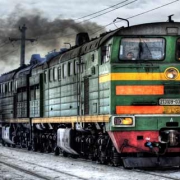Could the Emirates be to the Middle Eastern gas market what the UK was to European one
In the mid-nineties, the UK transformed its gas market unleashing liberalization. Competition was about to set customers free, set traders loose and set the scene for the birth of the dominating gas hub of Europe. The National Balancing Point better known as NBP.
The NBP, as its name suggests, originally was a leftover from the grid code. As in every equation, there needs to be a mechanism that allows balancing the system as reality never really matched the predictions cooked up in the ivory tower. At the time, few thought that this mechanism would attain today’s might and potency outside a small circle of initiated few so the uninspiring name National Balancing Point was dreamt up. It has been one of the big drivers of the European gas markets ever since.
As a result of gas market liberalization in the rest of Europe, other continental hubs spawned and some of them eventually came to some real fame. However none was able to match the sophistication, the volume of trade, and the absolute domination of the NBP.
Some continental hubs though had been created with gas trading in mind from the onset. For the NBP, trading has not been the most important objective. Some of those hubs (look at the Dutch TTF) owe their existence to intelligent design – custom-made to grow and churn. To this day and despite the phenomenal growth of the continental hubs, NBP remains the one hub that dwarfs any other in Europe in importance, sophistication, and absolute size. It has become THE big, famous hub of Europe a bit like Henry Hub aka HH has become the household reference for anyone talking about US gas.
Could this British success story be repeated somewhere else on earth?
The Gulf Cooperation Council, short GCC, has talked about the creation of a single traded gas market for countless years now. We should not hold our breath for it to spring into existence any time in the future just as it took way more than a decade to build the European gas market. But it’s a worthwhile goal.
Most of the time when people talk about gas trading in the Gulf, they mean LNG cargo trading which for obvious reasons has not materialized yet no matter how much some players in the industry wish for it to happen. Read my article on why LNG is not a commodity for more.
Qatar certainly showed a lot of ambition in creating this global LNG index. Dubai mulled the idea at times and so did others but all this blather did never amount to anything even resembling the NBP – a true gas trading hub.
This would take a lot of political goodwill and judging by how hard that is in Europe, chained together in a single market, it must seem impossible for the entire Gulf region.
But in Europe, it also started in one single country, in the UK and then the virus was allowed to spread.
Likewise, some countries in the Gulf would have to take the first step and the United Arab Emirates could just be this place – provided there is the will to go this way.
Let’s be unapologetically frank here – this is not going to be a walk in the park. However, there is no escaping the fact that the Gulf region increasingly becoming a hotbed of consumers of energy instead of an exporter heaven. Thats true for some countries at least.
The UAE also would have to do some pretty simple things such as setting the market free. That’s a hard thing to do in a closed market.
One of the very first things to do would be to create an integrated pipeline grid that allows all those willing to use it equal access. That’s no easy feat in a country that gives its constituent emirates sweeping rights over how to do things on its territory. Getting them to play in concert is a challenge. Besides, the current grids (there are several) are by no means an integrated structure. Some connecting and debottlenecking would have to be done and this means investment.
But one big emirate such as Abu Dhabi could start things all by themselves and wait for the others to fall in line. Let’s not forget that the UAE is comparable to a large gas-consuming nation such as Italy when it comes to total gas use and Abu Dhabi is the big boy in there. Its size would create a mighty pull.
It would be just as tricky to deal with the subsidy issue. You cannot have a free market and keep subsidizing certain players or bribing the consumers. A truly free market has its mechanisms and those do pretty much whatever they want. Remember the US being the high-price hotspot on the planet – sure you do if you dig up your grey matter a bit. Now it’s the low-price spot of the planet – all under the same free market regime.
That’s what a truly free market must be able to endure and those erratic prices must be passed on to consumers. That’s an ugly choice – I know but there is no way around this. Trying to swindle into getting a true gas hub without internal liberalization is going to be a disaster. Free markets always find a way around any so-called intelligent artificial bottleneck. If the Emirates likes to cushion its consumers from the real world, they are better off giving them the subsidy directly.
Now, just as NBP was not exactly a copy of HH, a new hub in the Gulf should rather take advantage of the particularities of its surroundings rather than be a copycat of something else. It could be the start of something much closer to the reality in the GCC – a veritable Gulf creation.
Let’s look at the supra-national realities. The Gulf is home to the biggest LNG producer on Earth and also to some of the largest gas-producing nations on this planet. The Gulf was the energy center of this world – at least before the shale revolution. Enormous wealth from enormous energy reserves has made this one of the foremost hubs of human economic endeavor. But it has also prevented consumer thinking as the exporter thinks still prevails everywhere. This is different for those who don’t have lots to export anymore such as Dubai. But it’s slow.
This also makes the Gulf an enormous consumer of energy. The giant energy reserves are not everywhere so some areas have a huge overhang and others are left starving. Those left out in the cold will have to import energy. It does not matter much where this energy comes from as long as this suits the needs of the market, in terms of price and terms of flexibility, and availability.
Importing LNG is therefore a legitimate proposition. If the Emirates would like their gas price hub to be accepted as the price benchmark for the import contracts (I would want that in their place) then it must convince the world that the hub reflects the market. No fiddling here.
The UAE would also have to prove to the world that its hub is free and transparent which means the implementation of lots of rules that were designed for other markets. It’s a hard way and it won’t be done in the blink of an eye but it would position the UAE as the leading hub and that’s no mean position to be in. It’s also worth some effort – just get ready for the consequences. But no economy can thrive in a controlled manner. The UAE is only going to have a shot at being the Gulf reference if it excels at the game on the hardball court.
Reality hurts but being the king offers some soothing to the pain.


















As suggested in the arltice there needs to be a significant level of trading before the implied volatilities are useful. The UK gas options market has been around for a while but liquidity has fluctuated in line with the entry and exit of the more innovative players (i.e. banks). Perhaps liquidity will increase with the globalisation of the gas market and the greater uncertainty this brings as companies become more sophisticated in the way they manage risk.